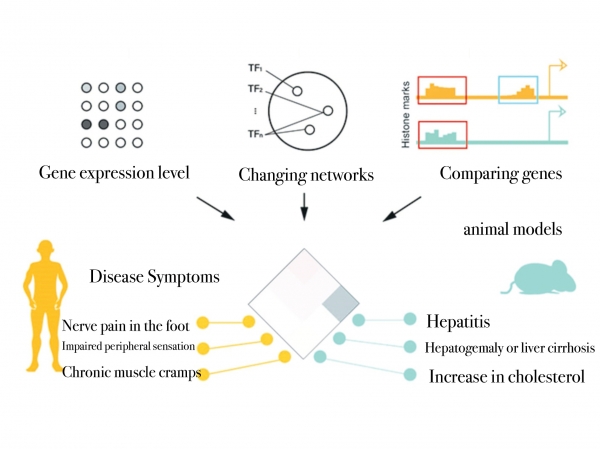
Conducting clinical trials before approving and marketing a new pharmaceutical product is a crucial process in verifying its effects and safety. Clinical trials are most accurate when conducted on humans, but obstacles such as strict ethical standards, the number of patients, and the cost exists for human clinical trials. Therefore, animal models, most commonly rats, are used instead. An important area of research is reducing the difference between humans and animal models so that the effects of clinical tests can be accurately displayed.The research team led by Professor Sanguk Kim of the Department of Life Science (LIFE) and Ha Do-yeon (LIFE Ph.D. Candidate, advisor Prof. Sanguk Kim) developed a new technology that selects specific genes in animals to replicate human diseases. Their research was published in Nucleic Acids Research. It was introduced as research that can help create more precise animal models for the production of new pharmaceutical drugs or discovering new cure for diseases.
The research team first gathered data on diseases from human and rat models then used big data analytics. Unlike prior research, which analyzed the difference in homologous chromosome sequences between species, this research focused on exploring tissue-specific gene expression and the network created by the genes. With this new approach, the research team came to a new conclusion: using a rat model with a different gene regulatory network to a human is not appropriate for human disease research. Additionally, rearranging the network from human and rat models before analyzing can help select a better animal model. Multicellular organisms have different tissues specified to carry out certain functions and each tissue manifest their own gene. This tissue-specific gene expression is regulated by a specific domain within the gene and the interactions between transcription factors.
Prof. Sanguk Kim claimed, “This technology can predict failure in medicine production before making animal models and help us understand the mechanism of diseases. This will lead to more efficient production of new drugs.” Meanwhile, this research was funded by POSTECH Medical Device Innovation Center, graduate school of artificial intelligence, and National Research foundation of Korea.


